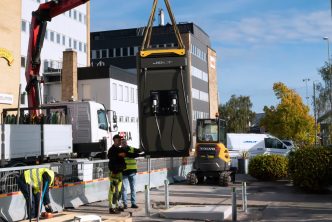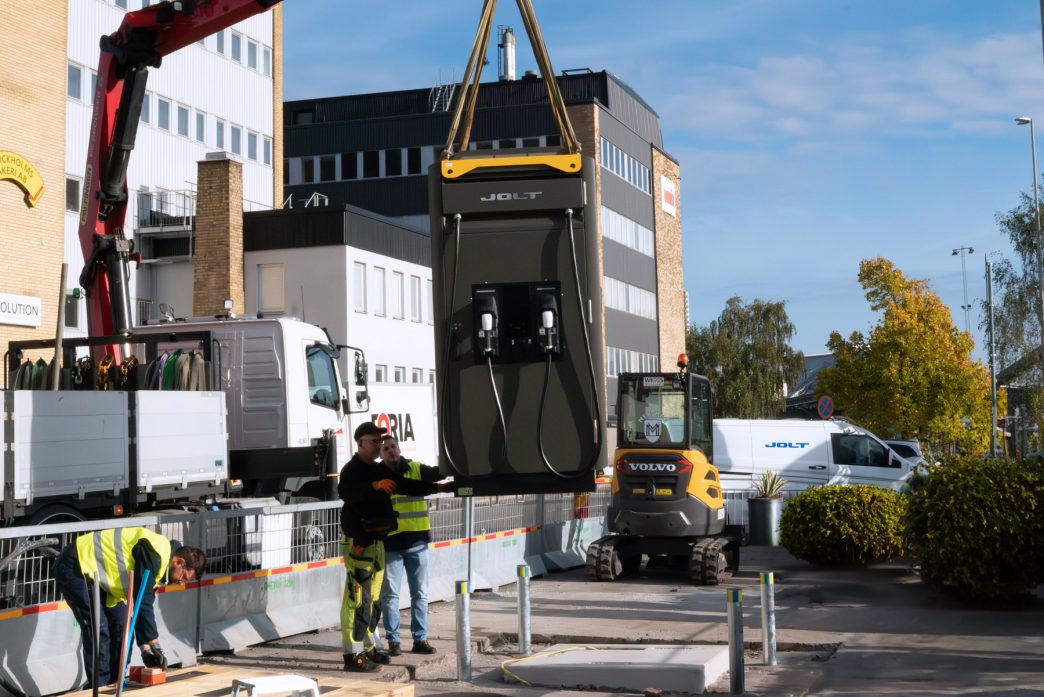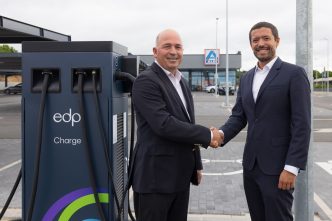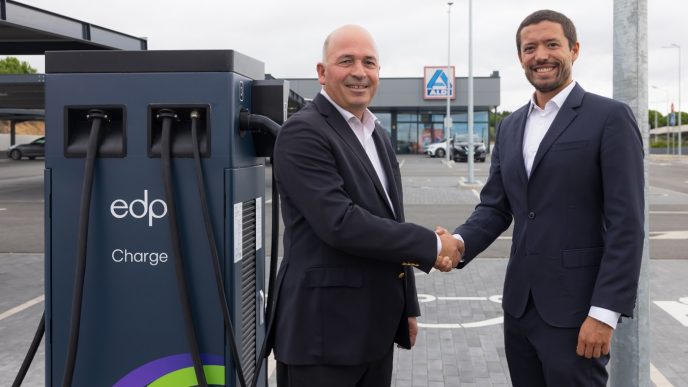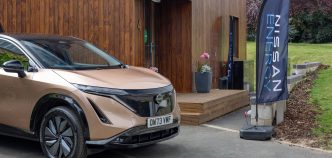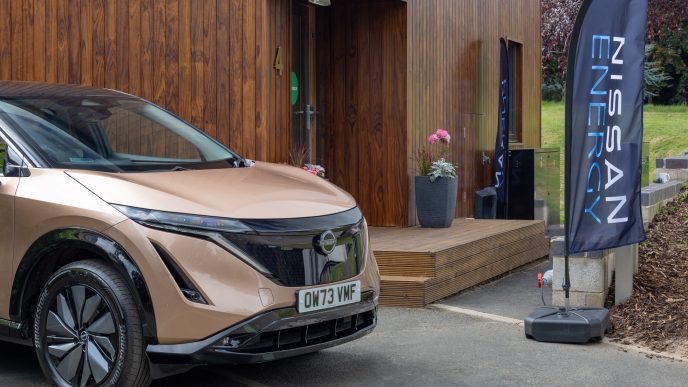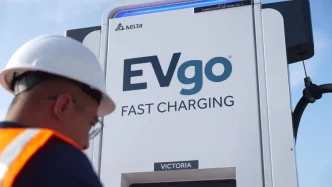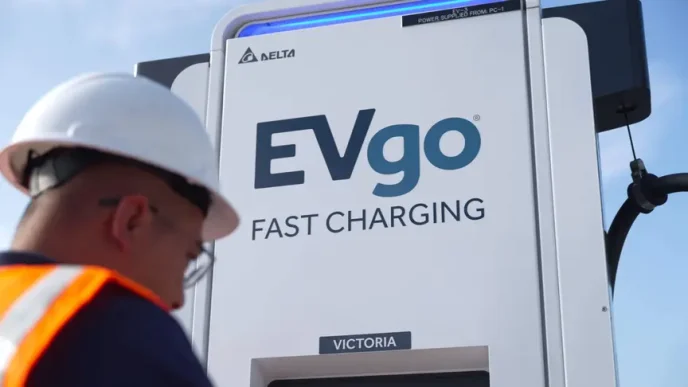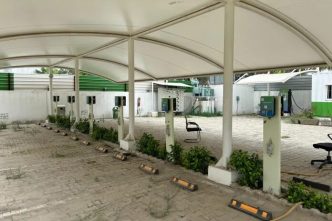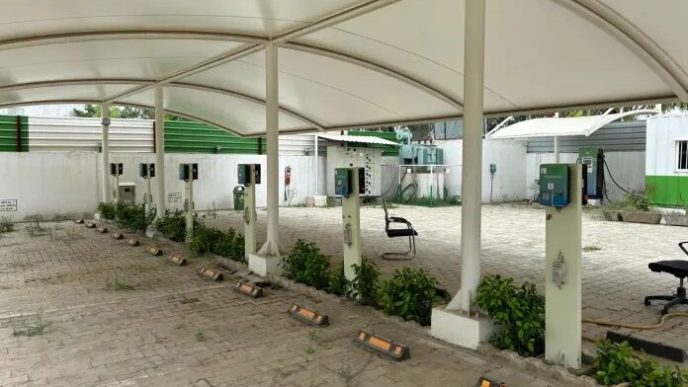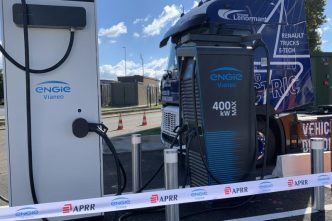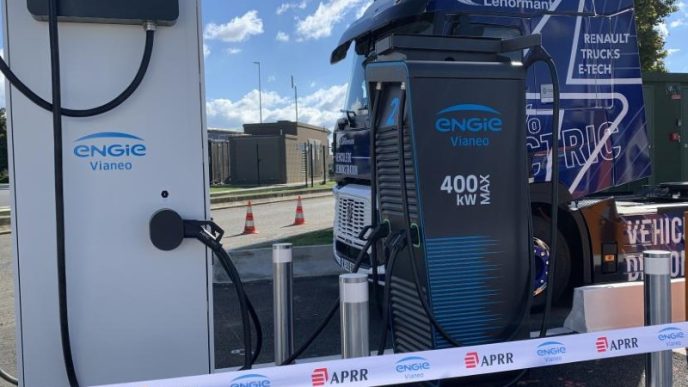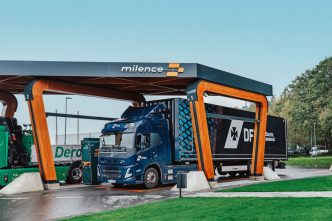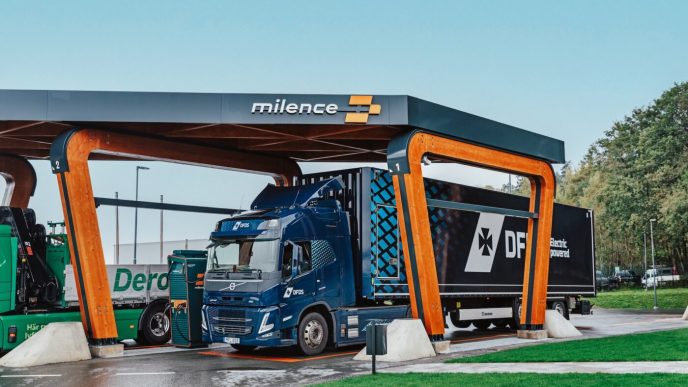JOLT Energy, headquartered in Munich, has received a significant order from Stockholm to install 50 high-power charging (HPC) stations, each with a 300 kW capacity, across the city by the end of 2025. The company, known for its innovative fast-charging infrastructure, sees this project as a blueprint for expanding urban EV charging solutions in other European cities, including Germany.
JOLT’s battery-buffered charging technology allows for fast EV charging without requiring extensive grid connections. Using integrated battery storage, these charging stations can deliver up to 300 kW of power while only needing a low-voltage connection, making installation quicker and less disruptive. This system is especially useful in urban areas where large grid connections may be unavailable or costly to implement.
The collaboration with Smart City Stockholm involves deploying these fast-charging stations in high-traffic areas, such as the grounds of Djurgården, a popular location near the royal castle. At these locations, electric vehicles can gain a range of 100 kilometers in just five minutes if the buffer battery is fully charged. Each station is designed to connect to the grid with power equivalent to a 2x 22 kW AC charging station, yet it can serve more vehicles due to its fast charging capabilities, increasing daily throughput.
JOLT’s HPC stations are space-efficient, making them ideal for cities with limited parking and public spaces. “By maximizing space efficiency, we free up room for cycle paths, public transport, and green areas, enhancing the quality of life in urban environments,” said Rauno Fuchs, Vice President of Government Affairs at JOLT Energy. JOLT will manage the infrastructure as a charge point operator (CPO), meaning cities like Stockholm can benefit from the technology without shouldering the costs.
The company already operates fast-charging networks in several cities, including Munich, Berlin, Hamburg, The Hague, and Rotterdam. In Stockholm, JOLT Energy will work directly with the city to install the charging points on public property, aiming to demonstrate the effectiveness of its “city cluster” strategy for public spaces.
JOLT Energy’s CEO, Maurice Neligan, expressed hope that the success of this project will inspire other cities to follow suit. “We encourage leaders in German cities to look at our partnership with Stockholm and see how we can quickly roll out cost-effective HPC infrastructure in public spaces without burdening city budgets,” Neligan stated. Nils Blom, project manager for Stockholm, added that this collaboration is vital to achieving the city’s climate goals, highlighting that JOLT’s battery-buffered chargers enable ultra-fast charging even in areas with limited grid capacity.
While JOLT is leading this project, other companies like ADS-TEC Energy are also developing battery-powered fast-charging solutions. JOLT has previously partnered with ADS-TEC, incorporating its ChargeBox technology into several projects, and continues to utilize its systems for enhanced charging experiences.

